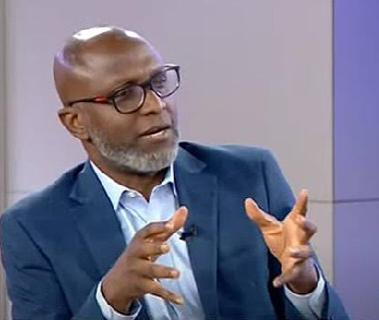Fighting corruption is imperative for your developmental plans to work, ex-Presidential aide tells Tinubu
Corruption remains the pervasive issue in Nigeria, often described as the “elephant in the room,” and addressing it should be a top priority in the nation’s development agenda. This sentiment was echoed by Laolu Akande, former presidential aide, during his appearance on My Take segment on Channels TV’s Inside Sources with Laolu Akande today. Akande […]

Corruption remains the pervasive issue in Nigeria, often described as the “elephant in the room,” and addressing it should be a top priority in the nation’s development agenda.
This sentiment was echoed by Laolu Akande, former presidential aide, during his appearance on My Take segment on Channels TV’s Inside Sources with Laolu Akande today.
Akande expressed deep concern that the current plans of the Tinubu administration would germinate better if the president took the fight against corruption as an imperative.
The veteran journalist said, “Corruption in our county remains the big elephant in the room. And trying to reduce corruption must become a major imperative in our quest for national development. This week the Council of State met and passed a vote of confidence on Mr President, but who will tell the President that attaining a lifelong ambition of becoming the President of Nigeria is not going to be as important when history is being written. It is what he does with that presidency that will matter.”
- Opposition party candidate wins LG election in Bauchi
- Over 18,700 mpox cases detected in Africa since January – AU
“So the real point is the lack of accountability by many of the state governors. The worry is that the money is getting to the state governor but it is not reaching the people and it is not impacting their life notably. In any case is the fact that much cash is now coming from FG to the states but the living conditions of our people are becoming poorer. Who will tell the president that corruption is the big elephant in the room? In a bid to enforce prices of food to come down, the FG decided to be selling bags of rice at 40000 to the civil servants but those bags of rice end up in the market selling for 80000.”
He emphasized that despite the criticisms and allegations surrounding President Tinubu’s past, a consistent and deliberate effort to reduce corruption could earn him the trust of the Nigerian people.
One of the glaring examples of systematic corruption Akande highlighted is the disparity in earnings between senators and professionals like surgeons and professors. He criticized the fact that senators receive over ₦20 million monthly, while these highly skilled professionals earn less than ₦1 million. “This is systemic corruption,” Akande remarked.
Another issue of concern is the disbursement of ₦570 billion by the Federal Government to states, which Akande noted has sparked considerable debate. While the funds were part of a World Bank loan, they would not have been accessible without the approval and guarantee of the Federal Government. However, Akande lamented the lack of accountability among many state governors, pointing out that despite the influx of funds, the living conditions of Nigerians continue to deteriorate.
The former presidential aide expressed dismay over the widespread allegations of corruption in Abuja, where positions in Ministries, Departments, and Agencies (MDAs) are reportedly up for sale, yet no significant investigations have been launched into these claims. He specifically mentioned the unresolved case of the suspended Minister of Humanitarian Affairs, Ms Betta Edu, urging the government to provide clarity on whether she has been implicated or exonerated.
Akande further criticized the ongoing power struggle over the National Agency for the Prohibition of Trafficking in Persons (NAPTIP), which is supposed to be supervised by the Ministry of Justice. He revealed that certain individuals within the government are allegedly attempting to bypass due process to replace the current Director-General, Professor Waziri, despite her commendable performance.
In a more alarming revelation, Akande recalled a recent television interview where Tony Okocha, a former Chief of Staff to the Rivers State Governor, openly admitted that the Rivers State Government rigged local government elections during his tenure. Akande questioned why no security agencies have taken action against Okocha, despite his public confession.
Akande also referred to an interview with Tony Elumelu, a prominent Nigerian businessman, in which Elumelu warned that international oil companies are divesting from onshore assets due to rampant oil theft, which is severely damaging Nigeria’s economy. Akande urged President Tinubu to tackle corruption in the oil and gas sector with the same vigor he applied to reforming the Central Bank of Nigeria.
Akande made a passionate plea to those close to President Tinubu to remind him that attaining his lifelong ambition of becoming Nigeria’s president is not the ultimate achievement. “It is what he does and the legacy he leaves in that office that is more important,” Akande asserted. He emphasized that reducing corruption would not only improve the nation’s governance but also buy the administration the time needed for its other initiatives to take root.
